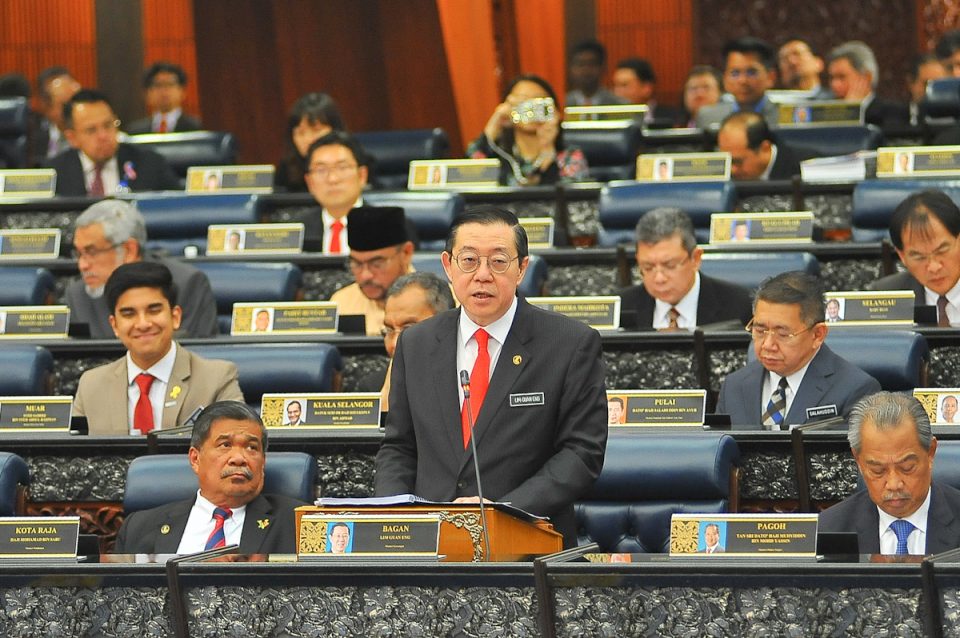KUALA LUMPUR, Oct 12 — The Pakatan Harapan government had yesterday revealed its second Budget 2020, which was tabled by Finance Minister Lim Guan Eng in Parliament, since the ruling party took over the administration last May.
With the theme “Driving Growth and Equitable Outcomes Towards Shared Prosperity”, here are some pointers on what is in store for Malaysians, which includes raising the minimum wage and maternity leave, targetted petrol subsidy, and increased subsidies.
No reintroduction of GST
The ruling government does not plan to reintroduce the Goods and Services Tax in respect of the mandate given by the people in the last general election.
Increased subsidies up to RM24.2 billion
Total subsidies and social assistance will be increased from RM22.3 billion in 2019 to RM24.2 billion in 2020, which includes the Cost of Living Aid (BSH), agriculture-related, fuel subsidies, and interest rates.
An allocation of RM5million for the BSH will be extended to cover 1.1 million single individuals aged above 40 years old earning less than RM2,000 a month.
“In addition, all disabled persons aged 18 years old and above, with an income less than RM2,000 per month will also be covered. They will be entitled to receive BSH payment of RM300, and qualify automatically as a recipient of the free MySalam Takaful scheme,” Lim said.
For those under BSH, the petrol subsidy receivable will be RM30 per month for car owners and RM12 per month for motorcycle owners, where the first payout will be made in April 2020.
A fuel card would also be made available for all to buy 100 litres of RON95 subsidised fuel for car owners or 40 litres for motorcycles owners every month, which is currently subsidised by the government at RM0.30 per litre.
Targeted fuel subsidy
The fuel Targeted Subsidy Programme (PSP) would apply to individuals who own no more than two cars and two motorcycles. This is eligible for one vehicle.
The qualifying criteria for the vehicle are:
– A passenger car with 1,600cc engine capacity and below; or
– Any car above 1,600cc must be more than 10 years old; or
– Whereas, a qualified motorcycle must be 150cc and below; or
– Any motorcycles above 150cc must be more than 7 years old.
Luxury vehicles are not qualified for the targeted subsidy.
Perks for employees
The minimum wage will be raised from the current RM1,100 rate to RM1,200 beginning January 2020 for workers in major cities in the country.
The 60-day maternity leave will also be increased from 60 to 90 days in 2021.
Also, for those earning RM4,000 and below, employers will be made to pay overtime to its workers.
Malaysians@work initiative
Graduates who have been unemployed for over a year would receive a wage incentive of RM500 per month, while employers will receive a hiring incentive up to RM300 per month.
Women aged between 30 and 50 years old who return to the workforce will be given wage incentive of RM500 monthly while the employers will receive a monthly hiring incentive up to RM300.
Locals who are hired to replace foreign workers will receive wage incentive either RM350 or RM500 a month, depending on the sectors, and the employers will receive a monthly hiring incentive up to RM250.
All said incentives above will be disbursed for two years.
To encourage youth to enter the Technical and Vocational Education and Training (TVET) course, an additional RM100 monthly incentive will be added into the existing allowance for trainees on apprenticeships.
The rich to be taxed more
Millionaires earning RM2 million and above will be imposed 30 per cent tax, from the current 28 per cent, to address the issue of income inequality.
Of parenthood and child-rearing
A new category will be introduced by the Employee Provident Fund (EPF) to allow fertility treatment such as in-vitro fertilisation (IVF) procedure. An additional income tax relief of up to RM6,000 will be given on expenses incurred for medical treatment of serious illnesses to include fertility treatment.
Increase of Individual tax relief for parents who enrol their children in registered nurseries and kindergartens, from RM1,000 to RM2,000.
An allocation of RM60 million to kick-start the pneumococcal vaccination for children.
More allocation for Education Ministry
The Education Ministry, which receives the largest portion of the budget, has been given an RM64.1 billion allocation, from the RM60.2 billion last year.
The allocation includes RM735 for the construction of new schools and improving the existing infrastructure of national schools, as well as RM783 to upgrade schools in rural areas of Sabah and Sarawak.
Additional perks for civil servants
An RM50 increase in the cost of living allowance (COLA) for 1.6 million civil servants was promised, along with the payment of backdated leave to those with 15 years of service.
The next-of-kin of deceased civil servants will also be given up to RM150,000 ex-gratia payments.
The Fire and Rescue Department will be given an RM200 monthly allowance, while the Armed Forces personnel who had received a medal of service will be given a one-off RM500 pay. A special allowance of RM500 will be given to those of Grade 56 and below, while retirees would receive half of the amount, which is expected to be disbursed by the end of the year.
Easier home purchase with rent-to-own scheme
The government is to collaborate with financial institutions to introduce a rent-to-own financing scheme, to address the issue of the 10 per cent deposit and access to financing in buying a house.
“Through this scheme, financing of up to RM10 billion will be provided by the financial institutions with the support from the Government via a 30 per cent or RM3 billion guarantee,” said Lim, adding that the scheme is applicable for homes priced up to RM500,000.





